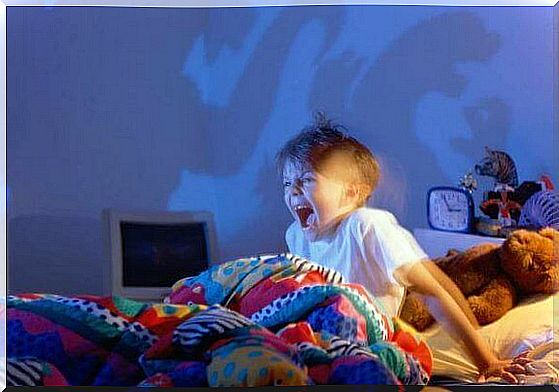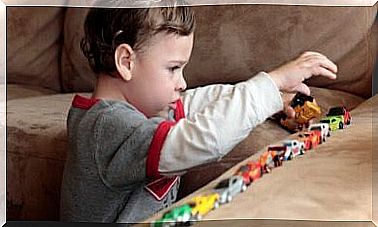What You Can Do If Your Child Has Nightmares

When children have nightmares and are also afraid to go to bed, how can we as parents help them sleep?
Most adults look forward to going to bed, but this is not always the case for children. Often they simply want to keep playing, and other times it is because they are afraid of having nightmares.
Below you will learn what the most common nightmares among children are about. We will also give some recommendations to calm your child after a nightmare.
Why do children have nightmares?
Nightmares are quite common. They begin to appear when children are about two years old and continue through childhood and often into adulthood. For some, nightmares disappear completely in adulthood. However, they are especially common among women.

There is no proven scientific reason for the existence of nightmares. On the other hand, there are several factors that can cause them.
Nightmares are often provoked by events that have occurred during the day, for example:
- Your child fell asleep late at night while watching TV, or watching a movie that was scary.
- Goodnight stories involving monsters or other scary things can also give rise to nightmares.
- Other causes can be stressful situations, such as arguments, the death of a loved one, changing schools, etc.
- When children are not used to sleeping alone, they may have nightmares more often.
It is important to understand that nightmares do not mean that your child has experienced any kind of trauma. It is perfectly normal for children to have nightmares. So there is no need to reach out to a doctor or other specialist.
How to avoid nightmares?
It is impossible to avoid nightmares altogether, but there are things you can do to give your children a calmer sleep and reduce the frequency of nightmares.
To help your children get the rest they need, try the following suggestions:
- Establish a routine for bedtime and mornings, and respect this routine.
- Your child’s room should be as comfortable as possible, free from objects that may frighten him or her.
- Eat dinner early and make sure the food is light. Also, do not allow games and activities before bedtime that are too energetic. Rather, help them relax. For example, you can give them a bath before bedtime, read a nice fairy tale or just cuddle.
- Give your child a hot drink before bedtime to help him or her calm down and relax.
Avoid things that can disturb your children, such as watching TV in the evening or reading scary fairy tales. Make sure the environment in your home is as relaxed as possible.
What should I do when my children have nightmares?
Since it is impossible to avoid nightmares altogether, all you can do is be prepared. That way, you can help when your child wakes up upset by a nightmare.

The first thing you can do is make sure your child feels safe. It will be much easier with your presence, because it makes your child feel safe. Whisper that everything is okay, that nothing will happen and that you are there.
Follow the flow of their imagination
Tell your child that what he or she saw in his or her dream was not real. Show your love and comfort your child so that he or she feels that you understand.
Another thing that can help is to follow the flow of their imagination. If they say they’re afraid of monsters, do a spray with water and lavender oil and say it’s a monster repellent spray, while you spray it under the bed and around the room. This way, your child can sleep and know that he or she is safe.
Also, do not turn off the lights completely. If possible, place a night light or flashlight near the baby’s bed. If the child has difficulty falling asleep, turn on some relaxing music. In the morning, invite your child to share his or her dreams and listen carefully to what he or she has to say.
In conclusion, if your children have nightmares, you do not have to worry – it is completely normal. What you can do is establish a sleep routine and avoid tense environments. When children have nightmares, the best thing you can do is be prepared to offer love and comfort.









